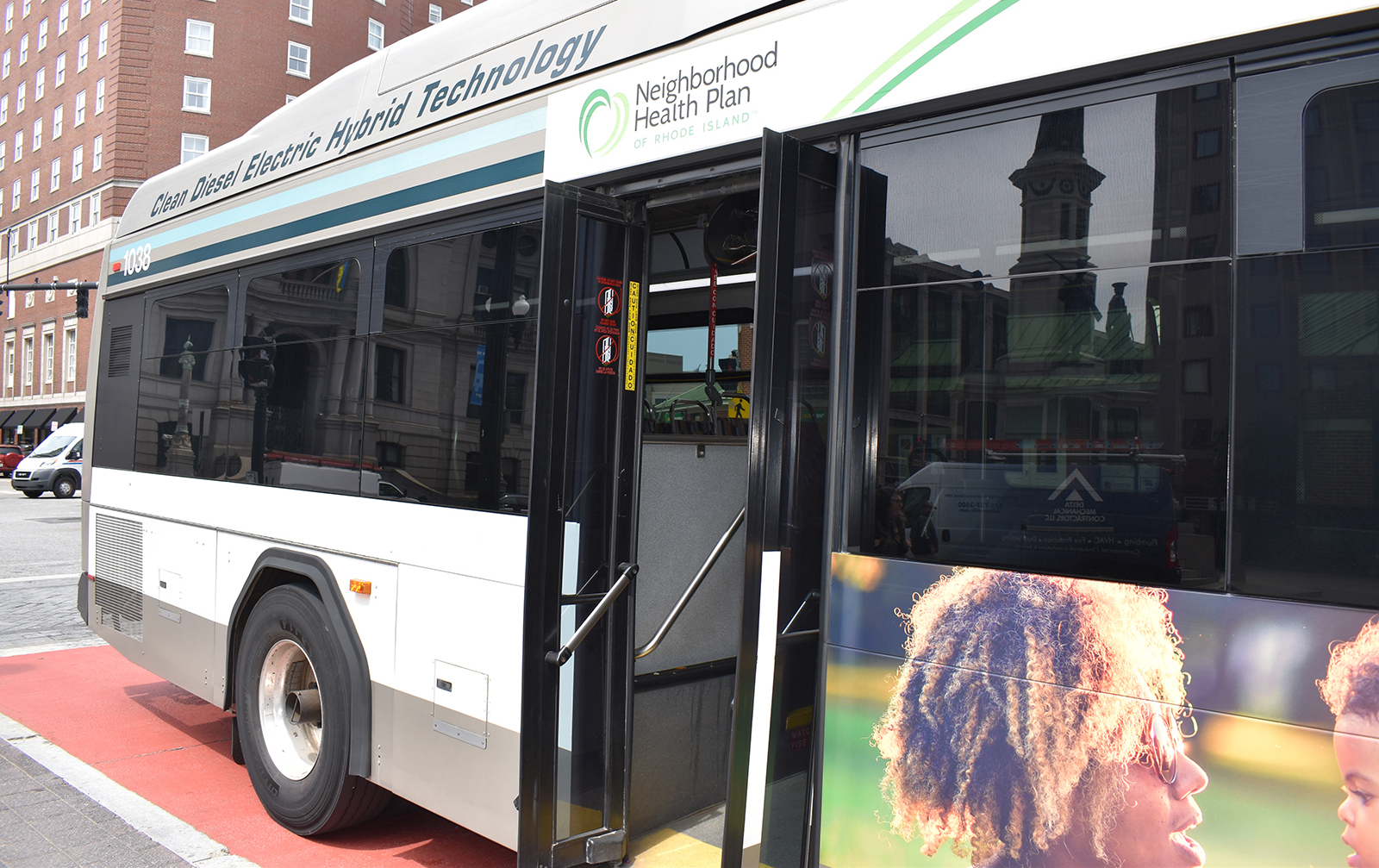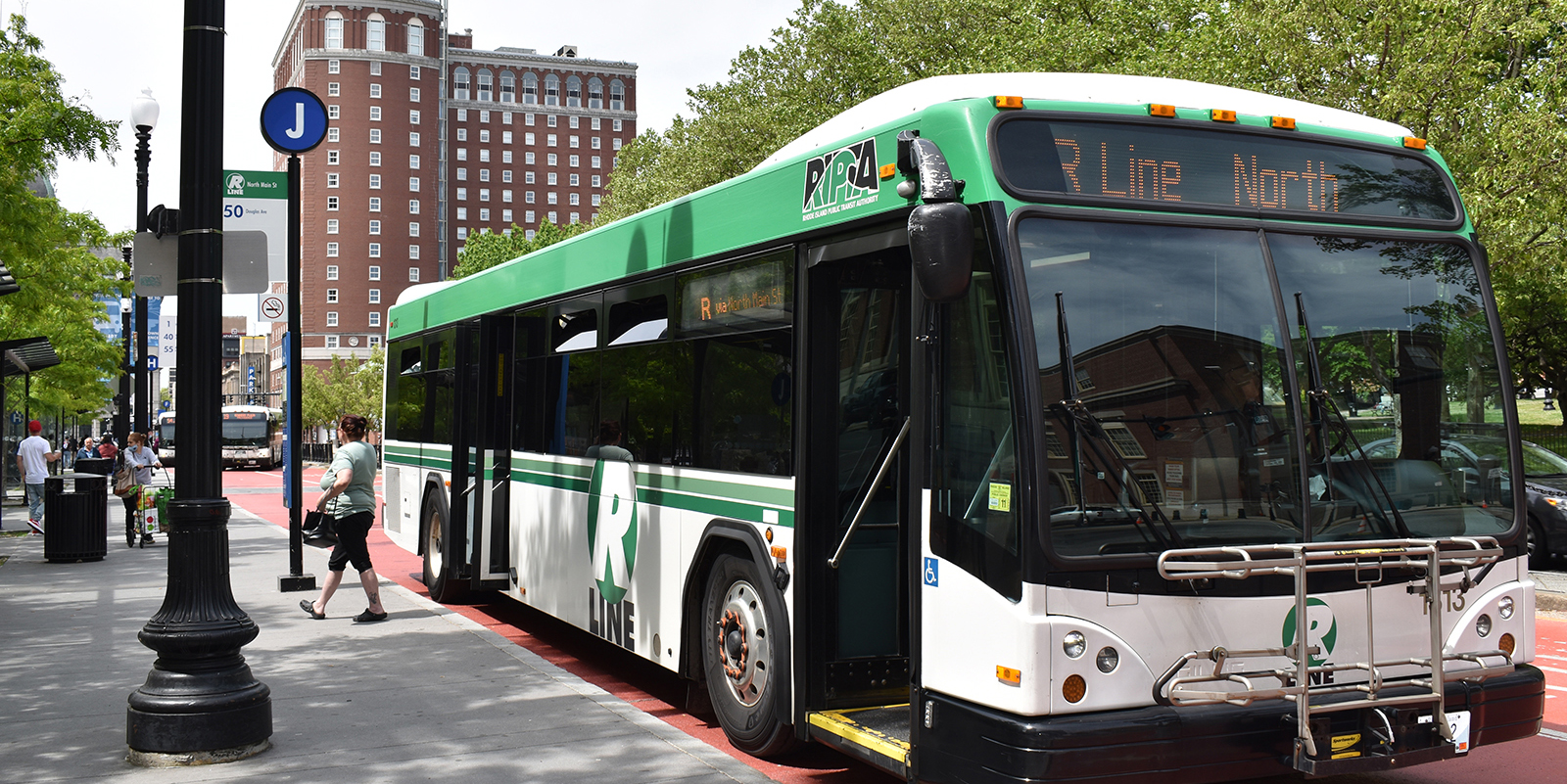New Rule Designed to Increase EV Sales
May 15, 2023
PROVIDENCE — A new regulation approved Wednesday by Gov. Dan McKee will ramp up the sale of electric vehicles in the state over the next 10 years.
The state will adopt the Advanced Clean Cars II (ACCII) rule, which will require car manufacturers to slowly, over the next decade, ramp up the percentage of electric vehicles sold in Rhode Island until 100% of all new automobiles sold by 2035 are zero-emission vehicles.
By adopting the rule, Rhode Island will see a greater inventory of new electric vehicles at dealerships across the state, and, state officials said, that will trickle down into the used-car market to make EVs more affordable.
Terry Gray, director of the Rhode Island Department of Environmental Management, the agency that will start the rule-making process on ACC II later this year, said the rule does not require anyone to buy a new car, or give up a gas-powered vehicle.
“They regulate manufacturers of new cars — not dealers, not the customers, it doesn’t touch the used-car market at all,” he said. “It regulates the manufacturers and what new cars they can deliver.”
Once passed, manufacturers would have two years of lead time before they must start meeting the benchmarks in 2027.
The proposed rule is the second iteration of California vehicle emissions standards adopted by Rhode Island. Under Section 177 of the Clean Air Act, Rhode Island first adopted the Golden State’s vehicle standards for passenger cars and trucks back in 2008, and it is one of now 15 states using the same standard template.
Since California’s Air Resource Board (CARB) passed ACC II last August, six other states, including Massachusetts, Vermont, and New York, have adopted the new standards.
New EVs will have additional requirements going forward. Battery electric vehicles must have a range of 150 miles, and plug-in hybrids must have a range of at least 50.
Their charging cords must be level 1 and 2 cable, and they must increase charger size to allow for faster charging. They must also come with warranties for parts and the batteries must retain 70%-80% of their range for the life of the vehicle.
State officials said the additional requirements are meant to spur the used-car market for EVs.
The announcement is the most significant move made by state officials to tackle transportation emissions since they were left at the altar in 2021 after Massachusetts and Connecticut pulled their support for the Transportation & Climate Initiative, which would have curbed vehicle emissions while raising money for green projects.
The state’s latest greenhouse gas (GHG) inventory from DEM shows transportation sector emissions — cars, SUVs, trucks, and everything else gasoline/diesel-powered on Rhode Island roads — still account for nearly 40% of all climate emissions statewide.
There are only 7,600 electric vehicles on the road in Rhode Island, but advocates are hoping the new standards will increase supply and demand.
State officials estimate emissions from light-duty vehicles will be 2.52 million metric tons of carbon dioxide equivalent (MMTCO2e) annually by 2025. In 2030, after the proposed regulations go into effect, those emissions will decrease to 1.83 MMTCO2e annually.
“Without these regulations, neither the department nor the state will be able to meet the goals set in the 2021 Act on Climate,” said Allison Archambault, a supervising air quality specialist at DEM. “With adoptions of the rule, greenhouse gas emission reductions from the transportation sector is expected to drop relatively quickly in the coming years.”
ACC II isn’t the only California standard state officials will adopt. DEM is also preparing a rule-making process to adopt the Advanced Clean Trucks (ACT) regulation. Similar to ACCII, it puts a mandate on manufacturers to ramp up the sale of electric or other zero-emission trucks. The rule would apply to any new medium- or heavy-duty vehicle more than 8,500 pounds, but with no 100% mandate by 2035.
State officials said emissions from heavy-duty trucks will be 1.14 MMTCO2e annually by 2025, and with adoption of ACT, those emissions will decline to 1.09 annually.
The public health impact will be invaluable, according to state officials. The ACCII alone will provide an estimated $60.7 million in cost savings from avoided hospitalizations and emergency room visits. ecoRI News has previously reported the impact from vehicle emissions along highway corridors in Rhode Island.
“It’s about the effects on the health of our communities, especially in communities of color, communities that are already overburdened in many ways,” said Sen. Alana DiMario, D-Narragansett, chair of the Senate’s Environment and Agriculture Committee. “Those transportation emissions cause really negative health effects, and those health effects come with a price tag.”
State officials said they were looking to increase the number of EV charging stations across the state. Rhode Island currently has 288 public charging stations, and officials said they have another $20 million to spend on expanding capacity over the next five years.
Meanwhile, the state is starting the rule-making process. DEM has scheduled a May 18 virtual public listening session beginning at noon. The department is also soliciting feedback from the public until May 24.
The public will have an additional 30 days to be announced later this year to comment on the regulations, with DEM officials aiming for a finalized rule by January.




Showing just how misguided RI politicians are:
https://www.nytimes.com/interactive/2023/05/16/business/china-ev-battery.html?smid=url-share